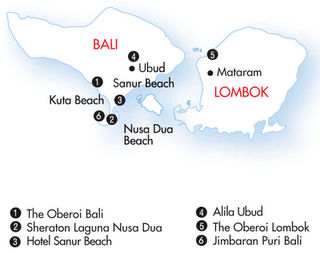OH MY GOODNESS!!
Labor's big shift on refugees
Michael Gordon
October 16, 2006
THE Labor Party is set to abandon its policy of giving refugees who attempt to come to Australia by boat only temporary protection, in a fundamental shift in its attitude towards asylum seekers since the Tampa episode of 2001.
Opposition spokesman on migration Tony Burke is expected to announce today the shift to permanent protection — which represents a sharp contrast with government policy — after it is endorsed by the shadow cabinet.
The decision will mean Labor will go to next year's election opposing the two key aspects of the Government's policy — offshore processing in foreign countries, Nauru and Papua New Guinea, and temporary protection visas (TPVs).
More than 900 mainly Afghan and Iraqi refugees remain on the temporary visas after being found to have genuine fears of persecution if returned to their countries.
They are unable to leave Australia and return or seek to be reunited with immediate family members.
Labor's shift could also have implications for the small group of Burmese asylum seekers who were sent to Nauru for processing last month if their claims for protection are found to be genuine.
The decision will end several years of emotional internal debate within Labor on the visa system that was introduced in 1999 in a bid to deter unauthorised boat arrivals.
Mr Burke has refused to be drawn on the imminent shift, but gave a clue to his thinking at a Labor for Refugees dinner in July when he said: "If there is a reason for us to take a TPV policy to the next election, I am yet to hear it."
He declined to comment yesterday, confirming only that he had received a report from Labor's social policy committee. "I'll be responding to the report to the shadow ministry and will have more to say after that," he told The Age.
One of those rescued by the Tampa and living in Melbourne said yesterday the uncertainty about when he might be able to see his family had caused him to be treated for depression last year. The young man had suffered three years' offshore detention, been on a TPV for three years and has another two years before it expires.
Under the visa he has to pay full fees to study, with no certainty that he will eventually be granted permanency. "It's very hard," he said yesterday.
A push to end Labor's support for TPVs was defeated at Labor's last national conference by a vote of 226 to 164 after then leader Mark Latham put his authority on the line. Existing Labor policy provides for two-year temporary protection visas, with an expectation that permanent protection will then be granted.
The 14-page report of the policy committee, obtained by The Age, argues that TPVs should be abolished. "If an applicant is found to be a refugee that person should be given permanent protection immediately," it says.
The report challenges the Government's assertion that temporary protection visas are a deterrent to unauthorised boat arrivals, asserting the system encouraged women and children to risk their lives and follow their husbands and fathers.
The report also argues that uncertainty inherent in the temporary protection system has exacerbated mental health problems for many asylum seekers and that having to re-apply for protection when temporary visas expire forces the refugee to relive past trauma.
Sources say there is now a recognition on Labor's front bench that conditions have remained unsafe in Iraq and Afghanistan for several years, undercutting one of the Government's main justifications for the regime.
The Immigration Department's website justifies the system by asserting that recent experience of changing country situations shows the value of being able to reassess whether a person has a continuing need for protection before conferring permanent or continuing protection.
One source conceded that the policy shift was less radical than it would have been three years ago, when several thousand refugees were on TPVs. The source said Mr Burke had no plans to reconsider the other controversial plank of Labor's policy, support for the Government's excision of Christmas Island from Australia's migration zone.
As at October 6, 9875 temporary protection visas had been granted since 1999, an Immigration Department official said. In addition, 830 temporary humanitarian visas had been granted to unauthorised arrivals in Australia's offshore excised places, such as Ashmore Reef .
About 8450 of these TPV and temporary humanitarian visa holders have since been granted permanent protection.
The official estimated that about 1430 people still held temporary protection and temporary humanitarian visas.


